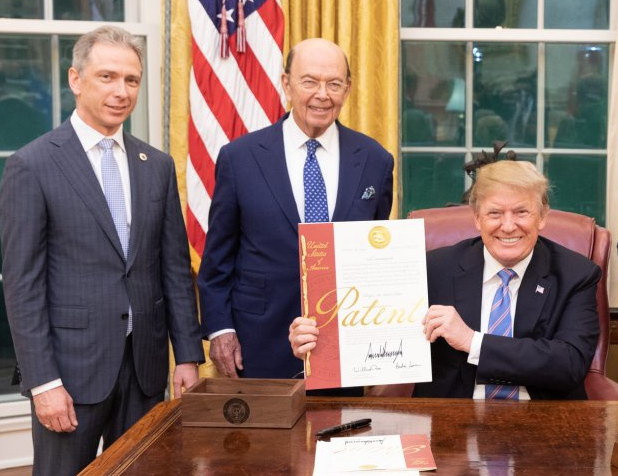

LAST month we published the Internet Association's comments on the "Revised Patent Subject Matter Eligibility Guidance", which sought to work around or overcome 35 U.S.C. €§ 101 (similarly, bypassing the courts, EPO President António Campinos works around the EPC to grant software patents in Europe).
"The patent zealots have nothing left but court- or judge-bashing."There are troubling signs that the litigation lobby will try anything it takes to work around the law. Weeks ago we mentioned Coons et al coming back with their ludicrous (and old) pile of papers. TechDirt's founder has just commented on it, but we don't believe these comments are even necessary anymore. They have been trying it for years and it always fails. They keep renaming and rebranding the same pile of papers. This time too it's already off the headlines; completely. Like UPC.
In Mike Masnick's own words:
For most of the history of Techdirt, we've talked about what an incredible mess the US patent system has been. There are many, many reasons for this, but a big one was that for decades, the appeals court that handles all patent cases, the Court of Appeals for the Federal Circuit (or CAFC), kept expanding what it considered to be patentable subject matter, and the Supreme Court completely ignored the issue. This culminated, ridiculously, in the State Street decision, which massively expanded what was considered patentable software (before that there was software covered by patents, but it was very, very limited). What made this situation truly hellish for innovators, is that (1) the software world was exploding with all different kinds of apps, and (2) almost no software was documented in the very few areas where patent examiners look for prior art: mainly, other patent applications and scientific journals. There was no need to document software in those places, because (1) when most people recognized software shouldn't be patented, very few even tried, and (2) why would you?
That resulted in a perfect storm in which patent trolls rushed in to fill the void. Tons upon tons of ridiculously broad patents were filed (or older ones were dug up and "repurposed" for use in trolling). Then it just became a shakedown game of numbers. Find companies doing something vaguely like what's broadly and oddly described in your patent, tell them they're infringing -- and offer to "settle" for less than the cost to win in court.
The tide started to change over the last decade and a half or so, in part because of a few changes to the law, but more importantly, the Supreme Court started to wake up to the fact that the CAFC had gone rogue and had massively rewritten patent law. And then over a period of about a decade, case by case by case, the Supreme Court smacked down CAFC. Two of the biggest such smackdowns came in the Mayo Labs ruling in 2012 which rejected medical diagnostic patents, and the Alice ruling in 2014, which rejected patents on software that performs "generic functions" (which is basically all software).
Across the United States, two-thirds of all states have introduced legislation that targets bad faith patent assertion by entities like MPHJ and Shipping and Transit. Massachusetts State Sen. Eric Lesser and State Rep. Lori Ehrlich are trying to make Massachusetts the most recent state to join this club.
Lesser and Ehrlich recently re-introduced their bad faith assertion bill that would allow victims of bad faith patent assertions to recover reasonable attorney’s fees and other costs incurred in defending themselves from a bad faith assertion. By allowing recovery of defense fees against these sorts of plaintiffs, Lesser and Ehrlich hope to protect innovation against fraudulent and bad faith assertions.